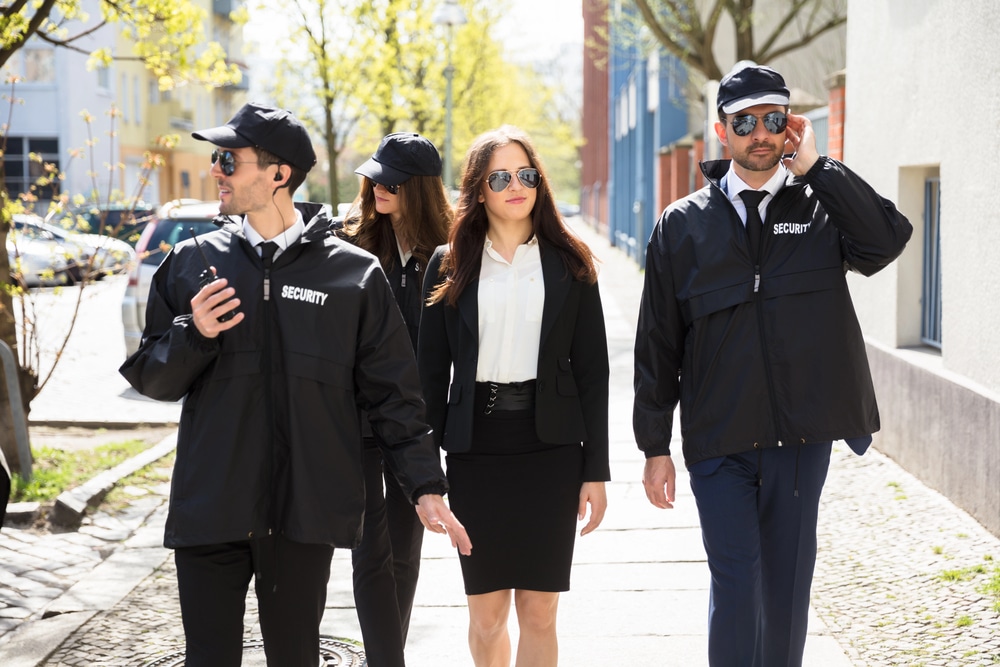Article At A Glance
- The role of social media in security operations includes providing real-time updates during emergencies and aiding in misinformation management.
- Social media platforms enhance crisis communication among law enforcement, private contractors, and the public by facilitating immediate information exchange.
- Institutions and security teams leverage social media to identify new security risks, monitor events in real-time, and employ AI for threat assessment.
- The integration of advanced technologies in security raises privacy concerns, necessitating a balance between public safety and individual rights.
Social media has evolved beyond merely sharing personal updates in our interconnected world. Security guard services now utilize these digital platforms to enhance response times, detect suspicious activities, and facilitate communication among security teams. The role of social media in security operations, both in private sectors and public surveillance, is continuously expanding.
Social Media and Surveillance
Security agencies are increasingly leveraging social media platforms to complement traditional surveillance methods. Facial recognition software and thermal imaging are essential tools, but posts from individuals and security personnel offer real-time insights into potential threats or suspicious activities.
Monitoring and Investigating
A key advantage of social media in security services is its ability to monitor and investigate real-time events. Law enforcement officers and private security can quickly assess risks when individuals share their experiences. Monitoring public social media posts allows officers to manage situations proactively, preventing them from escalating into serious security concerns.
Digital surveillance can track the movement patterns of individuals who may pose a threat. Integrating facial recognition software with surveillance cameras allows security teams to cross-reference real-time data with public profiles or social media accounts, significantly enhancing the efficiency of their patrols.
This situation raises significant privacy concerns, as highlighted by organizations like the Electronic Frontier Foundation. Maintaining surveillance and privacy is essential, especially regarding personal data collected from these platforms. Social media activity provides additional context and evidence in these assessments.
Monitoring And Influencing Public Opinion
Another valuable aspect of social media in security is the ability to gauge public sentiment. Understanding how the community perceives events and situations can help security agencies tailor their responses effectively.
Engaging with the Community
Security teams can use social media to engage with the public, build trust, and improve cooperation. By sharing updates, safety tips, and insights, they can foster a sense of community involvement and awareness.
Responding to Misinformation
Today, misinformation can spread quickly in our fast-paced digital world. Security agencies can monitor social media activity to address rumors or inaccurate information, ensuring the public receives correct updates during emergencies.
Real-Time Information Sharing & Crisis Communication
Security services must coordinate across various teams in high-pressure situations, including law enforcement officers and private contractors. Social media has become vital for real-time information sharing and crisis communication.
Crisis Response and Updates
Security teams and the police department increasingly use social media platforms such as Twitter, Instagram, and Facebook to inform the public during emergencies. In cases of fire, criminal activity, or public safety threats, these tools facilitate immediate communication, helping control panic and ensuring accurate information reaches people swiftly.
When a campus security team identifies a threat, they can enhance their operations by sharing real-time updates on social media to inform students and staff promptly. This creates an added layer of safety, allowing individuals to avoid dangerous areas and take necessary precautions before help arrives.
Coordinating Security Teams
Private security firms can also leverage social media for internal communication. Security teams operate across various sites, events, or campuses, making coordination challenging. Utilizing these platforms or private messaging apps enables guards to alert each other quickly about suspicious activities, facilitating a swifter response than traditional radio or phone communication.
Improving Awareness of New Campus Security Risks
College campuses, large event venues, and corporate offices require vigilant security. Awareness of evolving threats such as cybersecurity risks, active shooters, or unauthorized personnel is a crucial security risk. Social media provides a convenient way to stay updated on potential criminal justice risks.
Identifying Trends
Many universities and institutions work closely with security agencies to track trends that could pose risks. One effective method is to follow security organizations and law enforcement officers online, as they often share valuable updates on potential threats.
Event security teams and police officers can proactively address potential disruptions by utilizing advanced search techniques to identify suspicious behavior early. Monitoring social media activity related to large events can also provide insights into crowd dynamics and potential risks.
Monitoring Events in Real-Time
Social media helps event security monitor large crowds. At concerts or sporting events, guards can assess the mood and detect potential altercations by reviewing posts from attendees. The insights gained from this enable the police department to react effectively and maintain safety.
Leveraging Artificial Intelligence
The integration of artificial intelligence with social media also enhances security operations. AI-powered systems can scan public posts, identifying keywords and patterns that may indicate a threat. With facial recognition software, security teams can track individuals who might pose a danger and alert local law enforcement officers when necessary.
Additional Read: Mobile Patrol Security: The Value of Preventing Criminal Activity
Privacy Concerns and Responsible Surveillance
Utilizing social media and advanced technology in security offers benefits. Awareness of evolving threats such as cybersecurity risks, active shooters, or unauthorized personnel is crucial, yet it raises legitimate privacy concerns. The American Civil Liberties Union advocates for stricter guidelines on facial recognition and other surveillance technologies to protect individual rights. Security agencies must balance public safety by ensuring personal privacy.
Facial recognition software, for instance, has come under scrutiny due to its potential for misuse. When combined with data from social media platforms, the risk of overreach increases, highlighting the need for responsible security practices. The Electronic Frontier Foundation emphasizes the importance of accountability in using these technologies.
Upgrade Your Security with Stark Security
Integrating social media into security guard services transforms how security agencies, event security, and private security teams operate. These tools are invaluable today, from enhancing crisis communication to identifying emerging security risks. If you want to upgrade your security operations, Stark Security offers innovative solutions that harness the power of real-time information and advanced technology.
Ready to strengthen your security strategy? Call us today at (773) 455-1220 to learn how our expert security teams can protect your assets, people, and property with cutting-edge services.














